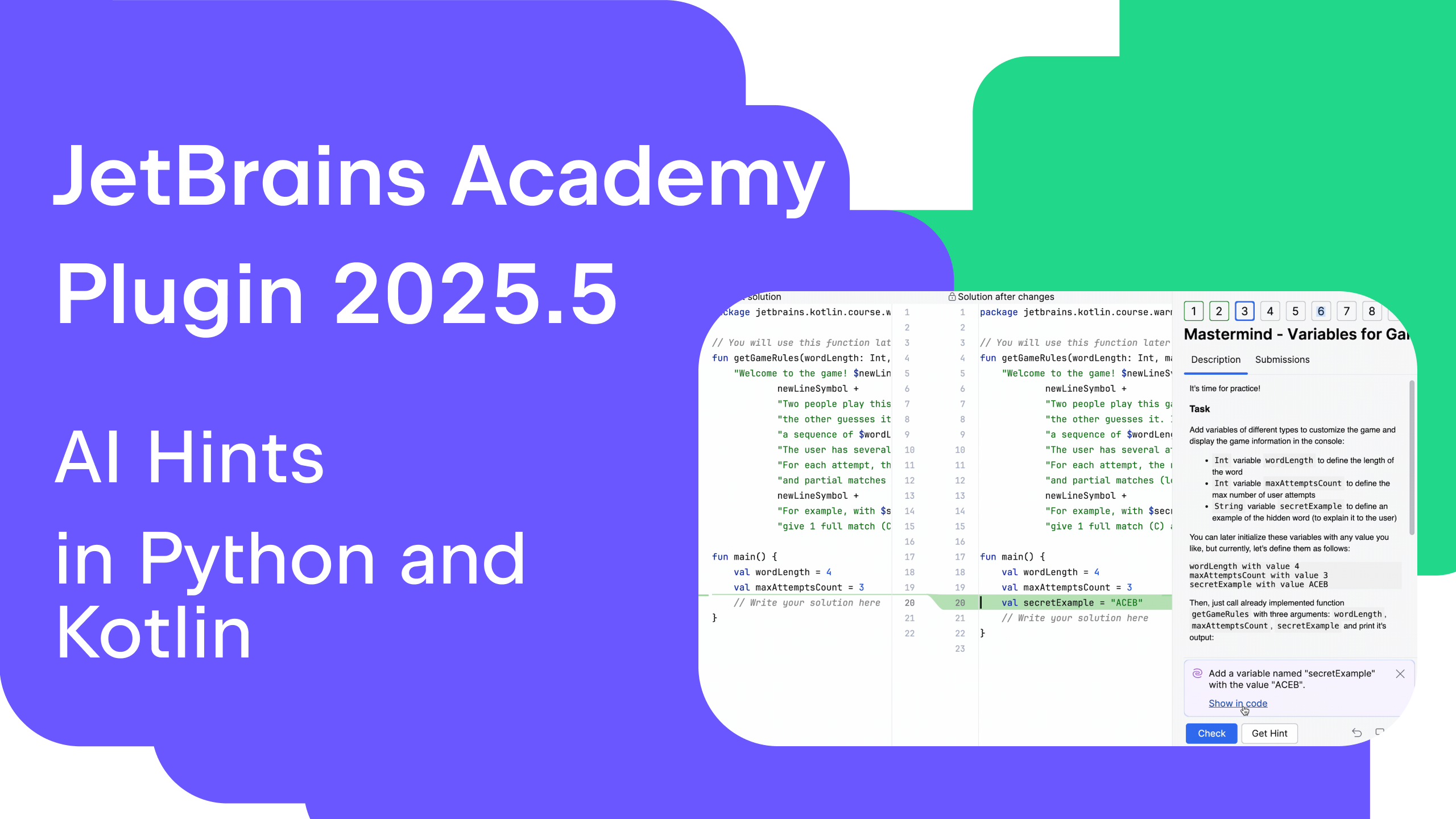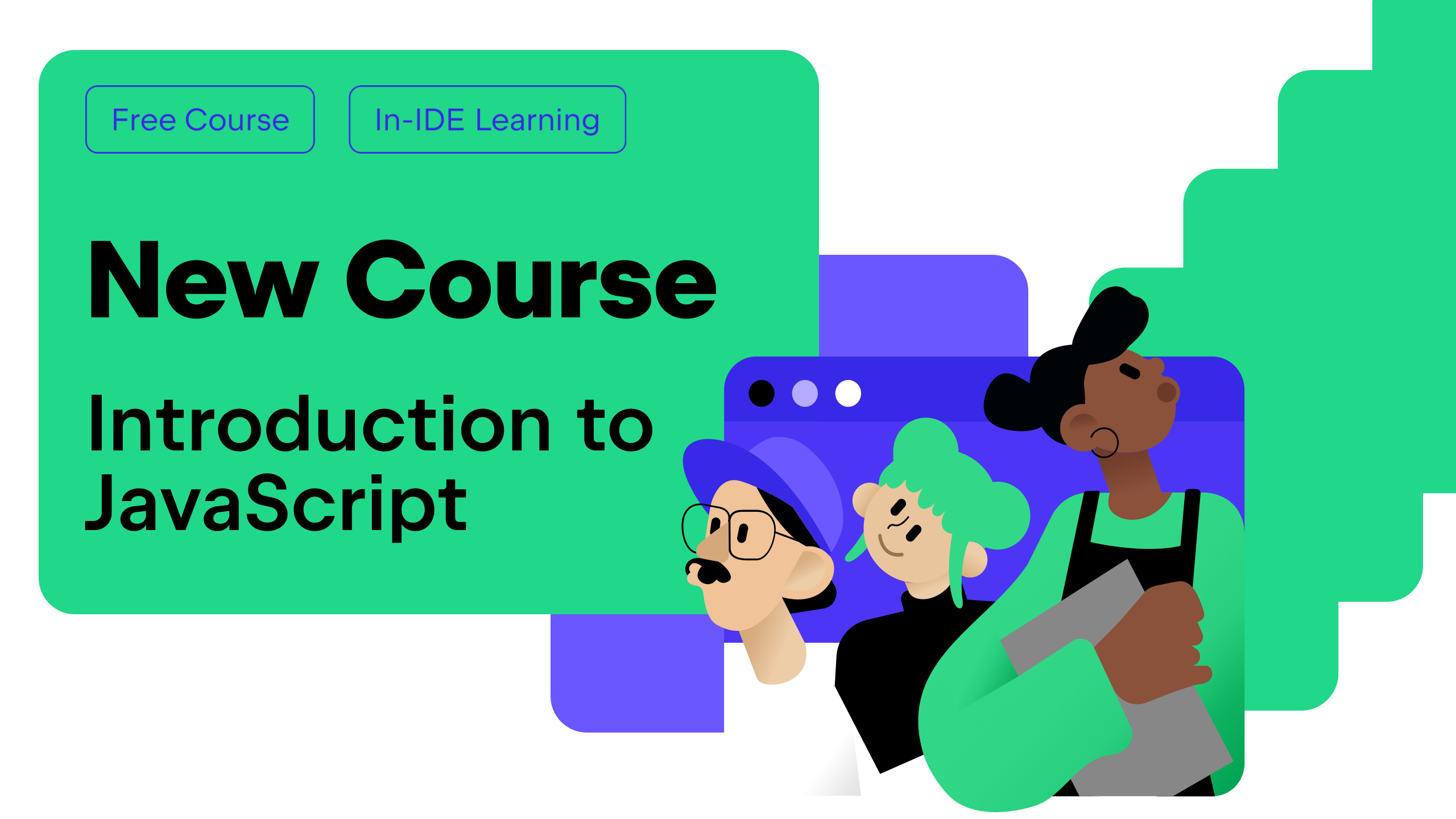JetBrains Academy
The place for learning and teaching computer science your way
Practice Coding Interview Algorithms in Kotlin
I’ll say it: preparing for interviews is not fun.
Even after hours of preparation, it’s hard to know when you’re really ready. There are always more exercises to do, more techniques to review, and how can you be sure you haven’t missed some obscure algorithm known only to technical interviewers?
For people with some programming experience, preparation materials must strike a delicate balance between challenging and refreshing their knowledge of the most important techniques, staying careful not to waste their time with exercises that are too easy or too hard. If you’re a beginner at the start of your interview journey, it can be hard to feel confident that you’re learning everything you’ll need without interview prep turning into a full-time job in its own right. When faced with a screen of 50 exercises and a frustratingly cheery “Good luck!”, many people quit before they even begin.
The Algorithmic Challenges in Kotlin course was created as a free solution to these problems. The exercises cover over 30 algorithms and were carefully designed by experienced professionals who understand the ins and outs of interview prep. By following the natural pace of the course you can avoid getting overwhelmed and make efficient progress in building confidence and expertise for your coming interviews.
If you are unfamiliar with Kotlin, you can first check out the Kotlin Onboarding: Introduction course, which will provide you with everything you need to complete this course.

Practice in your IDE
Topic by topic, you’ll be able to practice essential algorithmic techniques directly in your IDE, with built-in support for displaying task descriptions and automatic grading. Save time and brainpower using the productivity tools built into IntelliJ IDEA, including:
- Code inspections
- Auto-completion and code analysis on the fly
- Refactoring tools
- Testing and debugging
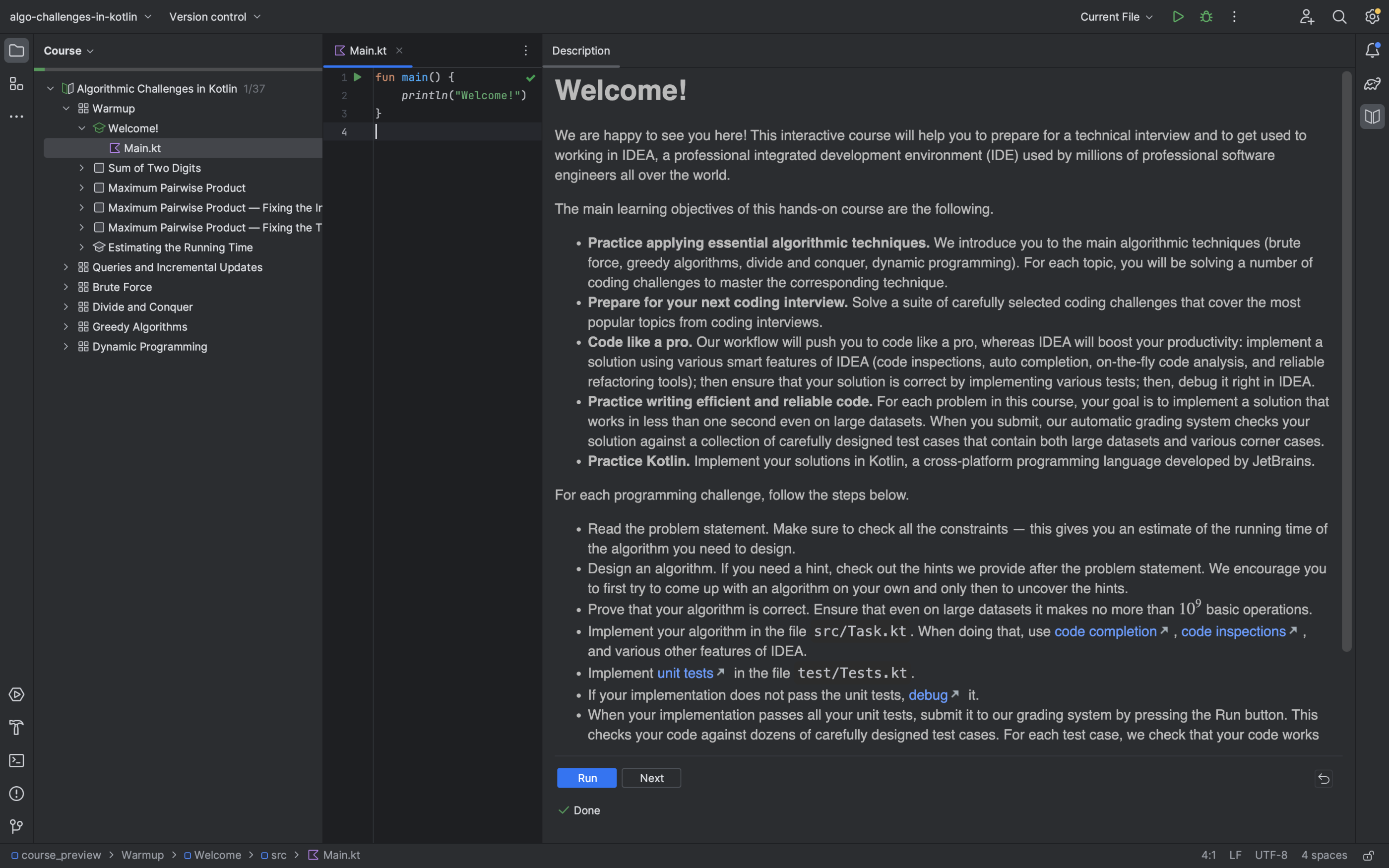
Course contents
The course will give you practice in applying algorithmic techniques such as:
- Brute force
- Greedy algorithms
- Divide and conquer
- Dynamic programming
In doing so, you’ll also learn to write clean, efficient code, which will be rigorously tested for edge cases and efficiency when applied to large datasets.
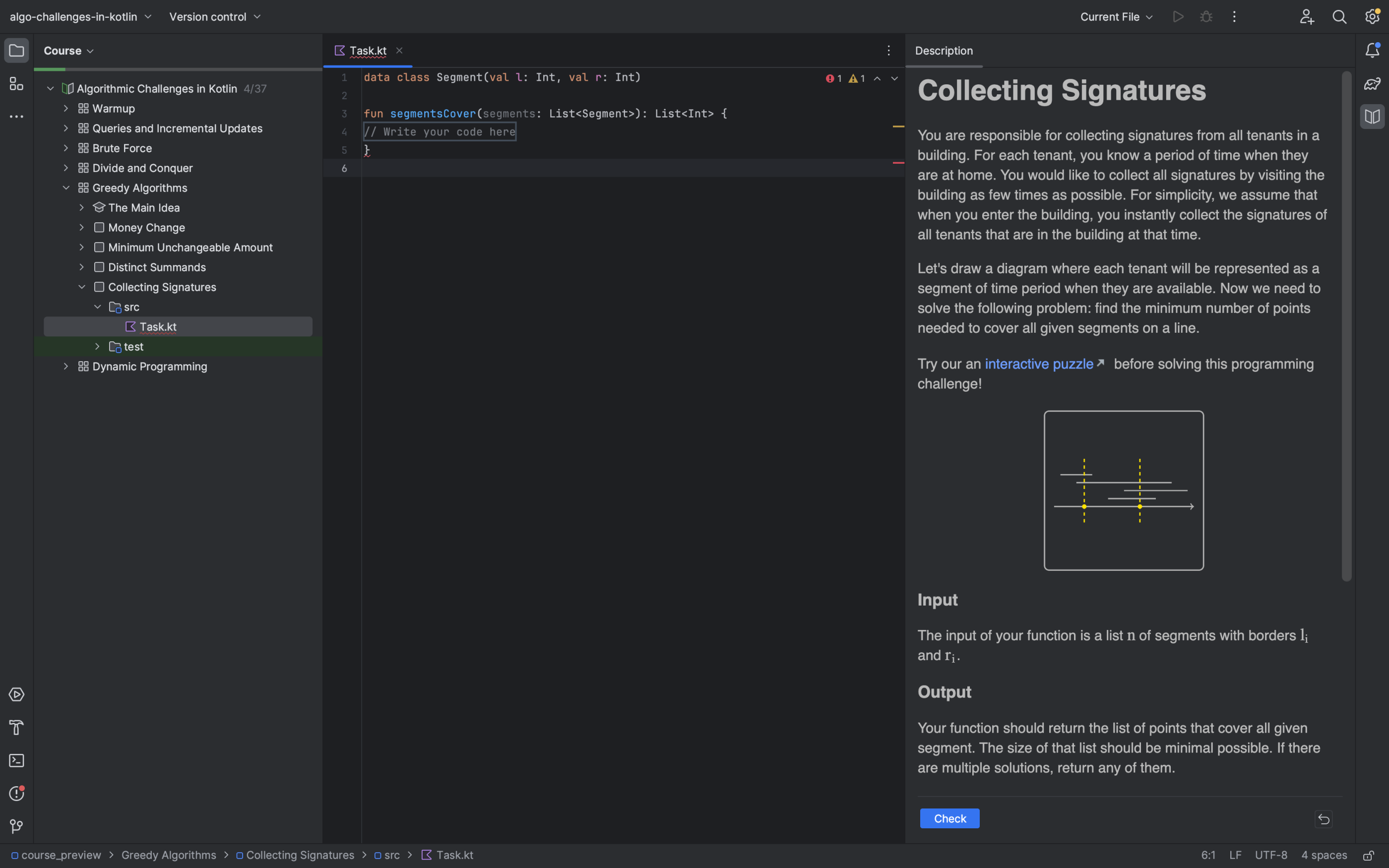
Implement in Kotlin
Kotlin was developed in 2010 and has a concise and expressive syntax, meaning you can focus more on understanding algorithmic techniques rather than fighting with brackets, null errors, and slow compilation time. You’ll find Kotlin being used by backend, fullstack, mobile, and cross-platform developers working for major companies like Amazon, Uber, and Trello. By preparing for your interviews in Kotlin, you’ll enhance your interview skills and become even more proficient in this modern and versatile programming language.
We suggest completing the Kotlin Onboarding: Introduction course first if you don’t yet have experience coding in Kotlin.
Start today for free!
Access Algorithmic Challenges in Kotlin today by following these steps:
- Download either IntelliJ IDEA Community Edition (completely free) or IntelliJ IDEA Ultimate (available with a 30-day free trial).
- Go to the Learn tab on the Welcome screen.
- Enable access under Learn to Program.
From there you’ll be able to find the course by locating it in the list of Marketplace courses.
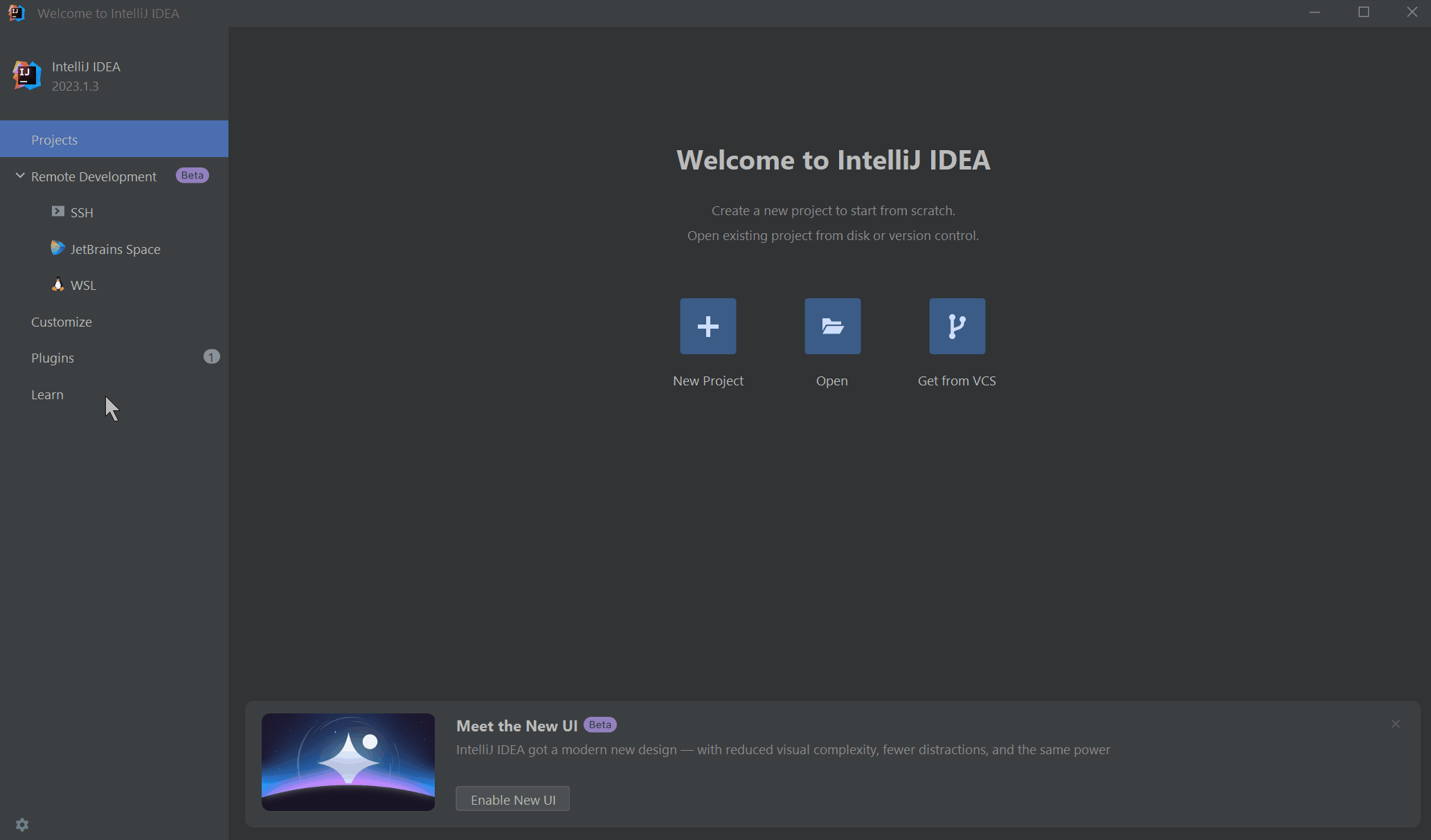
If you have any questions or would like to share your feedback, feel free to leave a comment below or contact us at academy@jetbrains.com.
Happy learning!
Your JetBrains Academy team
Meet the course authors
Subscribe to JetBrains Academy updates





